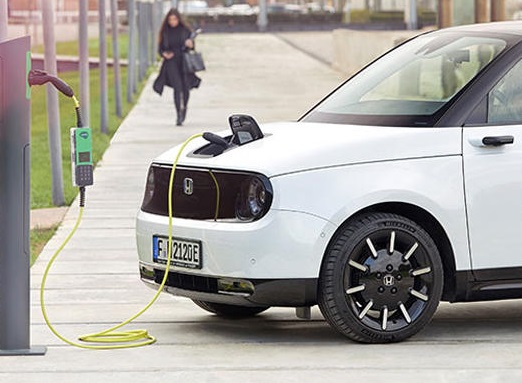The deal foresaw a US$ 5 billion investment and the production of “millions” of entry cars


By Redação AutoIndústria | 10/25/23 | Translated by Jorge Meditsch
After a long courtship and the “marriage” celebration in 2022 first half, Honda and General Motors announced on Wednesday, 10/25, the end of their world partnership to develop and produce affordable electric vehicles. The decision puts an end to a US$ 5 billion investment plan.
Announced in April last year with global hoopla, the partnership aimed to produce “millions” of vehicles from both brands already in 2027 over a single dedicated platform. From now on, each manufacturer will have its own strategy for the segment.
The end of the agreement indicates that, at least for now, not everything is going all right in General Motors’ plans and strategies to become an electric vehicle-exclusive manufacturer by 2035. On Tuesday, 10/24, Mary Barra, GM’s CEO, asserted that the manufacturer was reviewing its plan for affordable electric vehicles.
Facing a strike in the United States, the company had a 17% EBIT decrease in the third quarter from the profit obtained one year ago. GM already admits it hardly would profit in 2023.
“After extensive studies and analysis, we agreed to discontinue the program. Each company keeps compromised to the EV market accessibility”, said the manufacturers in a joint note, ensuring the continuity of some ongoing projects nevertheless.
When the partnership was announced, GM and Honda admitted using a new global architecture for affordable electric cars and Ultium batteries. Compact SUVs were part of the future portfolio. The deal also foresaw the uniformization of components and processes.
Assim como a Anfavea, o presidente da entidade, Marcelo Godoy, também não apoia pleito da…
Empresa tem acordo de participação e produção de carros na fábrica paranaense da Renault
Crossover elétrico tem duas versões de motor e autonomia de até 600 km
Há um ano no programa AutoEsporte, antes era chefe de Imprensa/Produto na Stellantis
Negócio envolve um centro de P&D e uma unidade de produção; empresa atuará de forma…
Da produção limitada a 660 unidades, dez desembarcarão por aqui